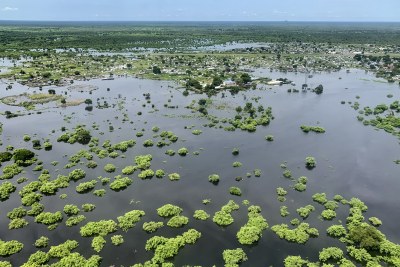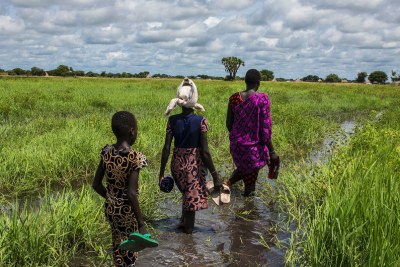-
South Sudan: Hundreds of Thousands Still Living in Precarious Conditions Months After Floods
MSF, 7 January 2022
When the floodwater levels started rising in her village, 21-year-old Nyabeel* and her husband were torn about what to do. Leaving their land, which they relied on for food, was a… Read more »
Precarious Conditions Persist Months After Floods in South Sudan
It has been eight months since flooding began in Unity State in northern South Sudan. People continue to suffer - stuck in poor living conditions and at risk of outbreaks of infectious and waterborne diseases. Spread across several makeshift campsites, they face food insecurity, a loss of income, malnutrition, and a lack of safe drinking water. An estimated 835,000 people have been affected.
The impact of the flooding is palpable, says Dr Eshaghian, medical team leader for Médecins Sans Frontières's (MSF) emergency flood response. "When you walk through the camps, you see malnourished children, people collecting dirty flood water to drink, cattle collapsing and their carcasses everywhere. Such poor conditions are harming people's health."
Initial Food and Agriculture Organization of the United Nations (FAO) studies suggest about 65,000 hectares of cultivated land have been damaged due to floods, while over 800,000 livestock died across eight of South Sudan's 10 states. Having lost so much of their cattle, many displaced women are resorting to collecting firewood to make an income. Increases in food commodity prices are making it more difficult for displaced people to get food, however.
Until people can return home, they will be forced to continue living in such precarious conditions. This poses an added challenge for humanitarian groups, requiring them to not lose sight of responding to immediate needs while recognising the protracted nature of this crisis and meeting corresponding standards beyond the initial emergency threshold.
Video
-
7 January 2022
Flooding in Unity State, South Sudan - Nyatuak's Story
- Publisher:
- Medecins Sans Frontieres
- Publication Date:
Over 835,000 people have been affected by the worst floods in decades in South Sudan. Nyatuak is one of them. Nyataba and her family have been ... see more »
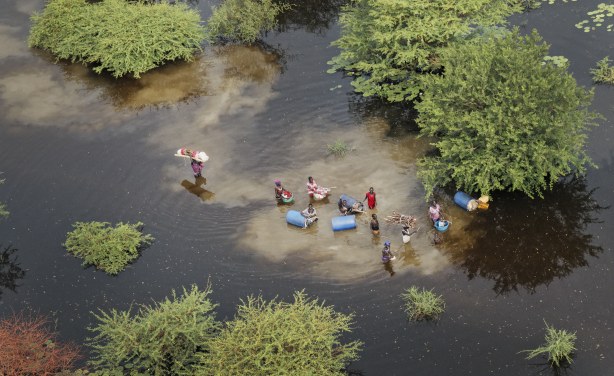
Flooding in Unity State Families heading to dry land in Bentiu. 835,000 people have been directly affected by the flooding. Across Unity state people’s homes and livelihoods (crops and cattle), as well as health facilities, schools, and markets, are completely submerged by floodwaters.
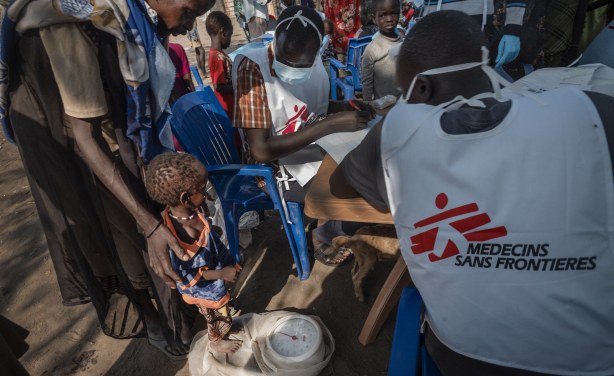
Flooding in Unity State A child is weighed at a mobile clinic on Rubkona. Across Unity state people’s homes and livelihoods (crops and cattle), as well as health facilities, schools, and markets, are completely submerged by floodwaters.
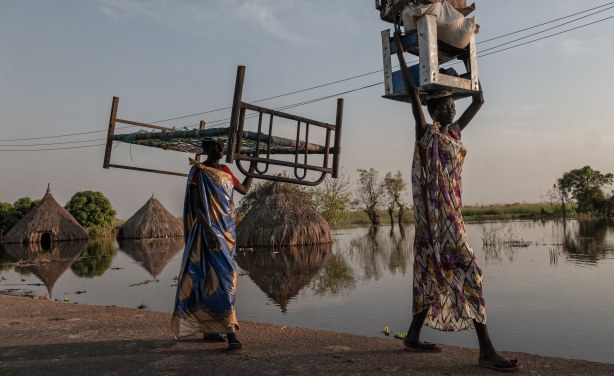
Flooding in Unity State Women carry pieces of furniture and goods in a flooded area of Unity State. Across Unity state people’s homes and livelihoods (crops and cattle), as well as health facilities, schools, and markets, are completely submerged by floodwaters.
InFocus
-
Weeks of heavy rain have caused unrelenting floods, affecting more than 700,000 people across the country, the UN High Commissioner for Refugees (UNHCR) representative, Arafat ... Read more »
-
Doctors Without Borders (MSF) has said it is deeply concerned by the impact of the severe and fierce flooding across the country where an estimated 500,000 people have been ... Read more »
-
Aid groups are predicting a sharp increase in food insecurity in South Sudan after weeks of torrential rain destroyed thousands of acres of cropland and washed away livestock and ... Read more »
